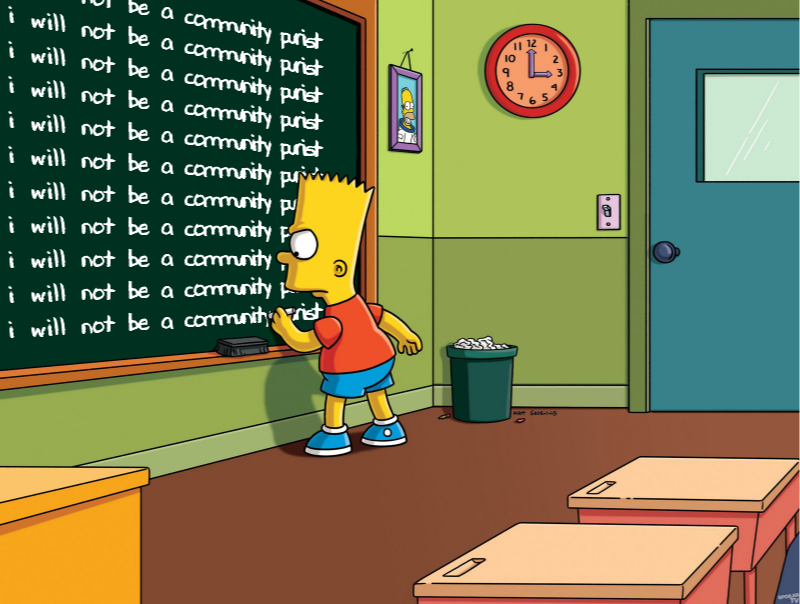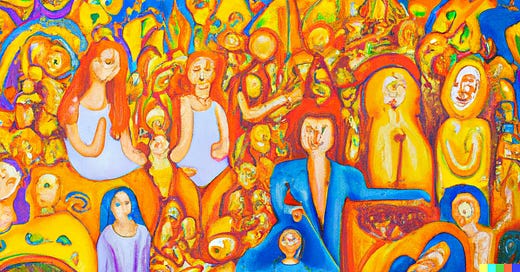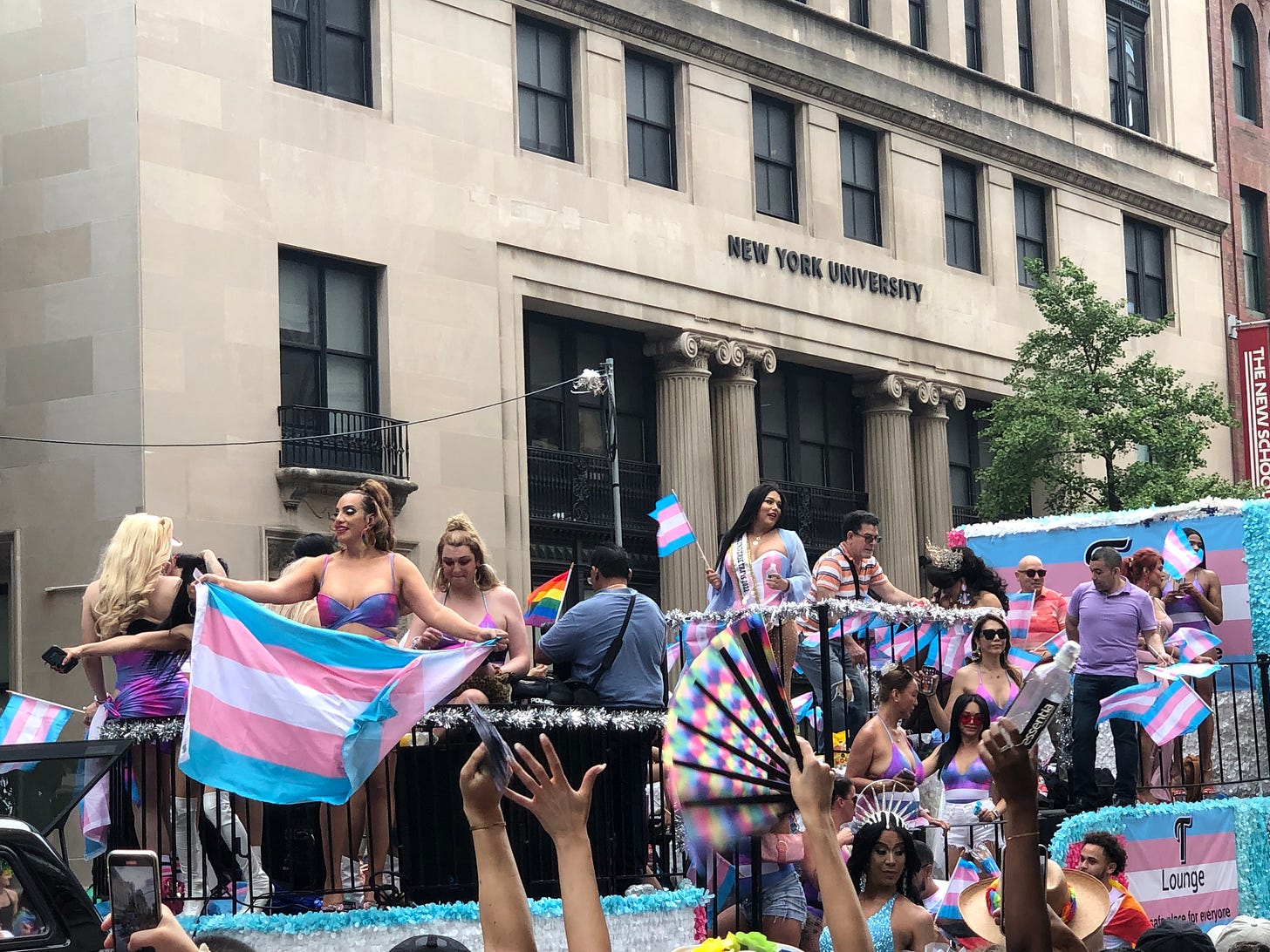👋 Hey community creators! Welcome to the 472 of you who joined this month.
Every Tuesday, I share a new post to help you become a smarter, more successful community creator. Starting this week I’m switching to “summer hours 😎” and will be publishing my newsletter once every two weeks.
If you’re not a subscriber, here’s what you missed this month:
Subscribe to get access to every post moving forward!
I've been witnessing a negative trend in the world of community building that I’ve been calling “community purism”.
Community purism is the belief that there’s an ideal form of community.
Any time you hear someone say, “That’s not a TRUE community”, community purism is at play.
I’ve been guilty of being a community purist. Look through my social feeds and you’ll find numerous attempts to define what community is and how it’s different from audience, or marketing, or social media.
Intellectually, it’s a fun exercise to try and define community. It's like a puzzle.
Practically, it’s a fruitless and potentially harmful form of judgment.
It’s like the parents who tell their teenager that their relationship, “isn’t true love”. Maybe you’re right, Mom and Dad. But to the teenager, it feels like love. Who are you to tell them it isn’t?
When people talk about “true community”, they don’t usually have a specific definition in mind. It’s more about the kind of community they’re looking for in their life. But instead of saying “This isn’t the community I’d want for myself”, they take a moral stance. “This isn’t a TRUE community”.
Friends, countrymen, people who walk their cats….
We need to loosen our guard of the community castle. We need to put a stop to community purism.
Here’s why…
There’s no such thing as a community utopia
If you asked someone to describe a “true community”, they’d probably say things like:
Everyone cares about each other and helps each other
Power and influence are distributed among members
Members feel emotionally safe and everyone has a voice
There’s a deep sense of belonging and connection
There are rituals, traditions, shared language, and symbols
It’s truly diverse, equitable, and inclusive
It has a positive impact on its members and the world
Members are forming deep and meaningful friendships
There’s cake
Etc…
What we’re describing is a utopia. It conjures up images of commune members picking berries in a sun-drenched field by the creek, or of indigenous tribes living in perfect harmony with each other and with nature (which itself is a myth). It’s the Hollywood version of community.
But anyone who builds community (which is a lot of you) or who’s been in a community (which is all of us) knows that the communal ointment is never without its flies.
Communities, like the humans within them, are inherently messy. There’s drama, cliques, greed… Power is rarely evenly distributed. There are haves and have-nots. Insiders and outsiders.
The elements listed above are all admirable to aspire to, but no community is perfect. And not all communities actually want all of those things (more on that later).
There is no community utopia.
Members might be having a community experience that you can’t see
Web3 is a space where community purism has run rampant.
If I had a nickel for every time I heard someone criticize a Web3 project for not being a “true community” I’d have more money than I lost on NFTs.
But you just can’t know whether or not a project is a community unless you speak to every member.
Some people in those groups most certainly experienced many of the things described as a “true community” above. They felt connected and empowered. They had fun and made friends. They ate cake.
Community is in the eye of the beholder. Like the parent of the teenager, who are we to tell someone that what they’re feeling isn’t “true”? Who are we to say that their group isn’t a community if they feel like it is?
No community is homogenous. In some parts of a community, people may be more deeply connected. In others, they’re more loosely connected. To some members, it may feel like a community while others may feel differently.
Even in communities that I’ve started and led, I could never have a perfect view of the web of relationships that existed within the community.
We all need different forms of community
We need a balanced diet of food, right? Some fruits and veggies, wheat and grains, maybe some meat, and definitely some spoonfuls of Nutella to the face.
Community works the same way. We need a balanced diet of connection.
We need communities that are deep and meaningful (like support groups), we need spaces where we can be playful and silly (like improv classes and meme groups), we need spaces that are transactional (like coffee shops and therapy), we need spaces that are professional (like associations and conferences). We need it all!
Contributing to the “community purism” problem is the decline of intimate relationships, the family unit, and religion. People are missing the deepest forms of connection and to fill that hole, we started holding all groups to this expectation of depth.
I’ve got bad news for you: If you’re relying on your software vendor’s forum to fill the void of loneliness in your life, you will be disappointed.
This expectation of depth leads us to look at a business or a creator who’s building community and criticize them for being too shallow or transactional. “That’s a business! It can’t be a TRUE community!”
Look at what this mentality did to our jobs. We started expecting our employers to provide us with this deep sense of community that, truly, should not be coming from a corporation. We give our blood and sweat to serve the “purpose” of these organizations with whom we have a contract and feel taken advantage of when the favor isn’t returned.
I recently heard a story about a company that asked employees to share a difficult childhood experience with each other while at a team retreat. That’s nuts! Employees shouldn’t be processing trauma at the workplace. But I’m not surprised a company would feel like they should facilitate a discussion like that. We’ve been holding them to this irrational standard of community.
I get it. We want to be able to separate “good” from “bad” in the world of community.
But good and bad are subjective. The question, “How do you measure community?”, will always have an imperfect answer because there is no single definition of success for a community.
Success for a SaaS product community is going to be different than success for a club for tall people, or a community for founders.
We need different communities and every community is different.
A better way forward…

I know what you’re thinking… the term “community” has been overused and abused. We need to fight against that trend.
I agree. We shouldn’t throw out all standards of quality. I just don’t think labeling communities as “true” or “not true” solves the problem.
Here’s what I propose: Instead of asking “Is this a true community?”, ask, “Is this community achieving its stated goal?”
A community is successful if it’s accomplishing the goal it set out to accomplish.
If you’re promising deep and meaningful connection and your members aren’t finding deep and meaningful connection then your community isn’t successful.
If you’re promising a playful space where you can reconnect with your inner child, then your members better be rolling around like a toddler in the mud.
If you’re promising a space where you can buy, sell, and talk about digital art, then as long as members are doing that, your community is successful.
If you’re measuring the success of your own community, lead with this question: “What promise have we made to our members and are we delivering on that promise?”
The big caveat: “Successful” doesn’t mean “good”. There are many examples of communities that successfully fulfilled their stated goal but had a negative impact (see: cults, nazis, web3 scams, etc.). I’m 100% for judging those community leaders for their negative impact. F*%$ those people.
What I’m saying is let’s stop labeling groups as “true communities” or “not true communities” because:
There’s no such thing as a community utopia
Members might be having a community experience that you can’t see
We all need different forms of community
Let’s prop up anyone who’s attempting to build a good community. Let’s bring down community purism.
Your turn: This was my spicy take. 🌶️ I’m sure there are good counterarguments. Whether you agree or disagree with my take on community purism, I’d love to hear what you have to say. Drop a comment, post on the social medias, or just hit reply.
🔥 Featured Community Jobs
Community Operations Manager, TeamPeople (Remote - $90-110K)
Senior Developer Advocate, Great Expectations (Remote)
Community Rewards and Recognition Manager, Pepper (London)
👉 View more community jobs here
I personally vetted 238 community builders who are looking for their next gig. Join to get access to my full talent collective and to have your job featured in this newsletter.
🍭 Brain Candy
Some goodies to get your community gears turning…
🍗 One of my favorite communities, The Dinner Party, was featured in the WSJ on how they’re using dinner parties to change how people process grief.
🚀 I’m taking Jay Clouse’s “Build a Beloved Membership” course and it’s seriously the best I’ve seen for how to launch a paid community. He’s got the process down. Highly recommend. (That link gets you 10% off + I get paid if you sign up).
🏙️ Think of community sizes like a city: 10 people = friends at a cafe. 100 people = block party. 1,000 people = city.
❤️ This website from Kasley Killam is a great primer on the topic of “social health” and how it’s different from mental health.
🤖 Community fills the information gap that AI and Google can’t. [tweet]
That’s all for this week!
My family and I had a great weekend in NYC celebrating Pride.
Every pride march I’ve been to has been a special experience (I’ve been to SF, Reykjavik, Tel Aviv, and now NYC). There’s just so much joy and love in the air. It’s a beautiful thing to see people celebrate who they are and feel safe in a world that doesn’t always accept them.
Sending you all lots of joy. Since I’m doing summer hours, I’ll see you again in two weeks!
Until then…
Thanks for building community.
-David “The Anti-Purist” Spinks
New: I’m testing out Substack’s new referral feature. If you enjoy this newsletter, share it and get these sweet rewards!





